Shihad
aka Pacifier
Shihad began as a bunch of high school kids in love with American speed metal and became New Zealand’s most celebrated hard rock band.
Their long career has not been without crises. Early triumphs were overshadowed by the drug-related death of their manager and mentor Gerald Dwyer, while their name – adapted from the Islamic word "jihad" – almost spelt the group’s demise when the War On Terror broke out, just as the group were poised for a major launch in the USA. Yet they have prevailed – and all without a single membership change in 22 years.
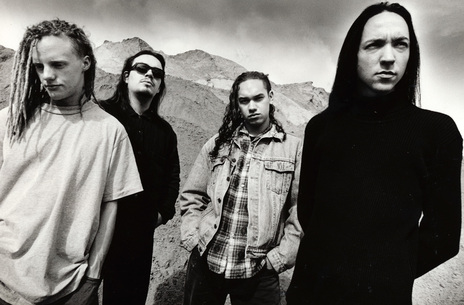
Phil Knight, Tom Larkin, Karl Kippenberger, Jon Toogood
Photo credit:
Photo by Martin Romeis
Interconnector
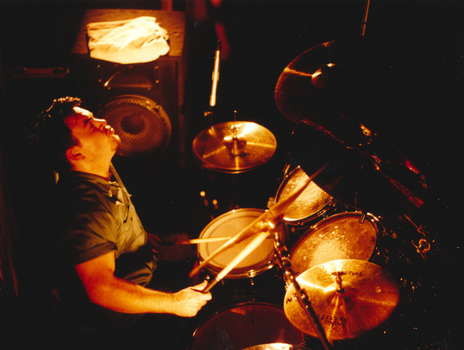
Tom Larkin
Photo credit:
Murray Cammick Collection
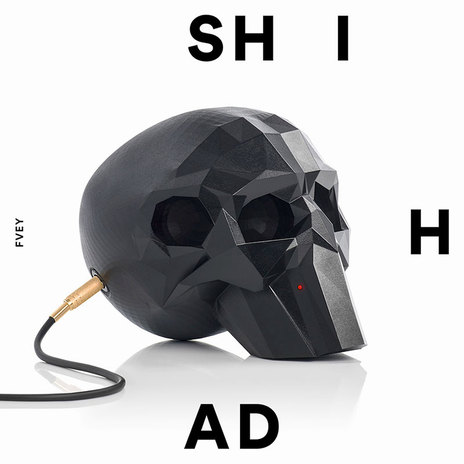
FVEY, Shihad's 7th album, produced at York Street Studios by Jaz Coleman and released in August 2014
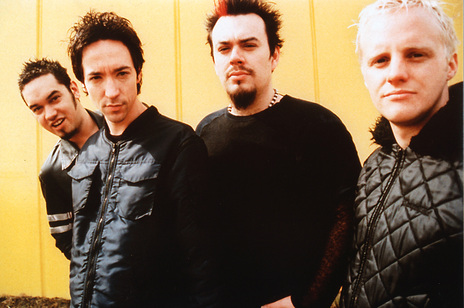
Shihad, 2000
Shihad - One Will Hear The Other (2008)
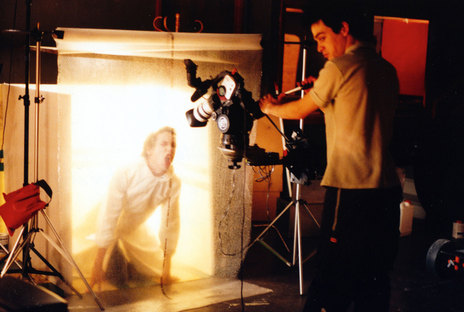
Shooting My Mind's Sedate video in Wellington with director Reuben Sutherland 1999
Photo credit:
Photo by Murray Cammick
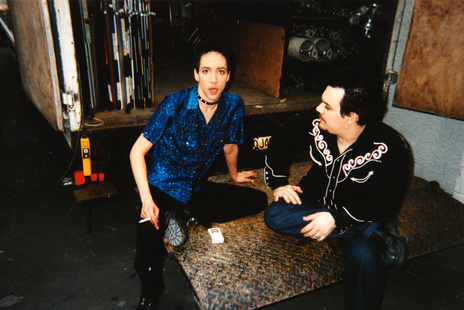
Shooting Interconnector video in Auckland 1998
Photo credit:
Photo by Murray Cammick
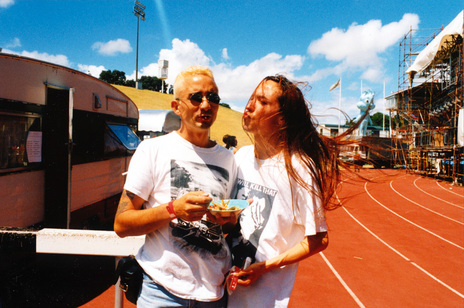
Gerald Dwyer and Shihad's Jon Toogood at the 1995 Big Day Out
Photo credit:
Photo by Murray Cammick
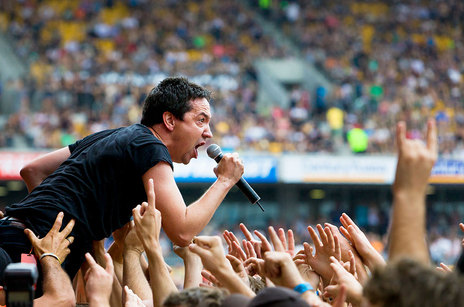
Jon Toogood 2011
Photo credit:
Photo by Adrian Malloch
Station
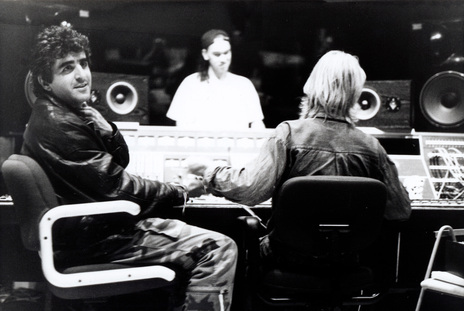
Jaz Coleman, Karl Kippenberger, Malcolm Welsford - Churn sessions at York St studio
Photo credit:
Photo by Murray Cammick
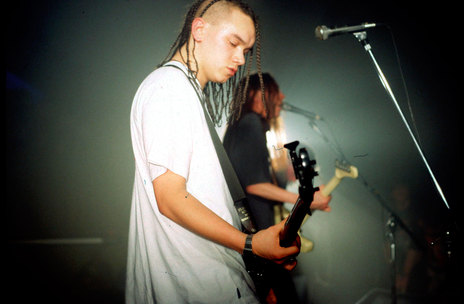
Karl Kippenberger - Churn tour, Powerstation
Photo credit:
Photo by Murray Cammick
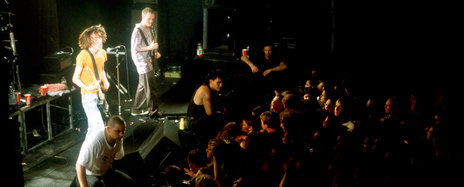
Shihad at The Powerstation
Photo credit:
Photo by Murray Cammick
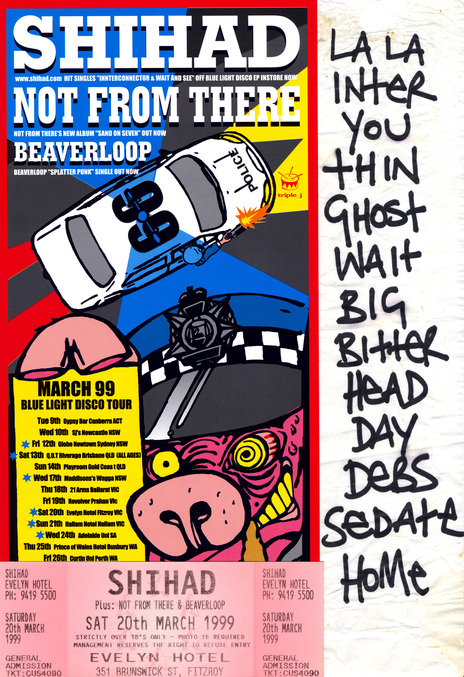
Ticket, flyer and orginal setlist from 20th March, 1999. Evelyn Hotel, Fiztroy, Victoria
Photo credit:
Murray Cammick Collection
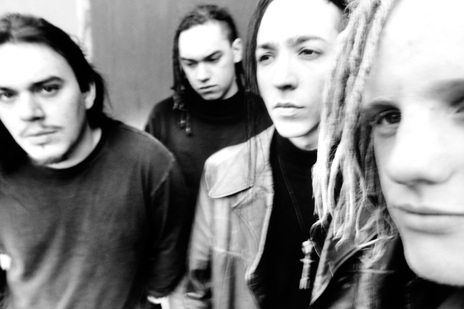
The General Electric (Alternative Video)
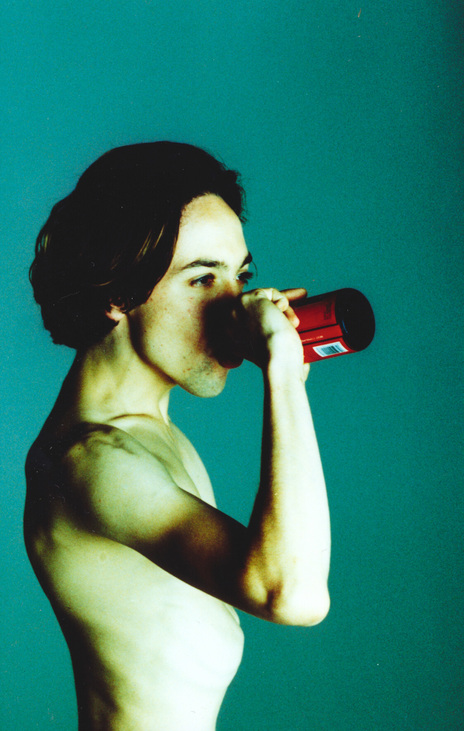
Jon Toogood for Hot Metal magazine 1996
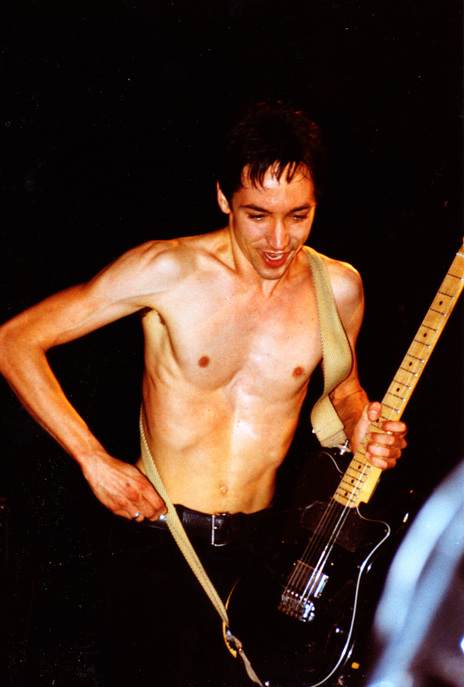
Home Again
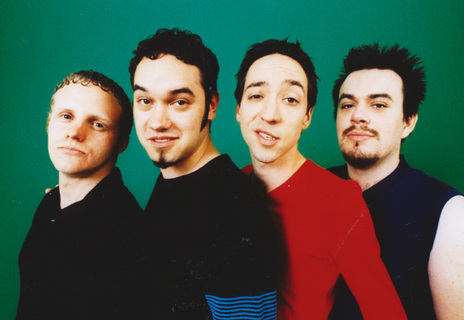
12XU (Wire cover)
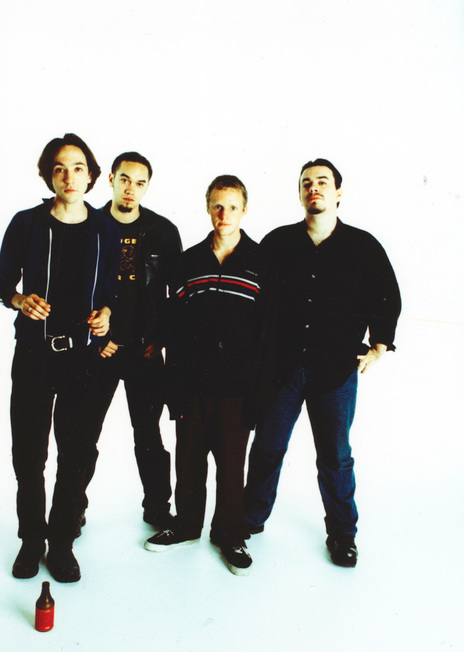
Dark Times
Pacifier
Cold Heart (Homegrown 2010)
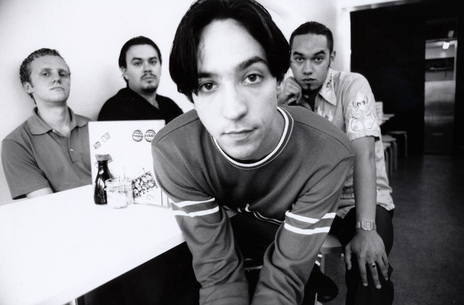
Lead Or Follow
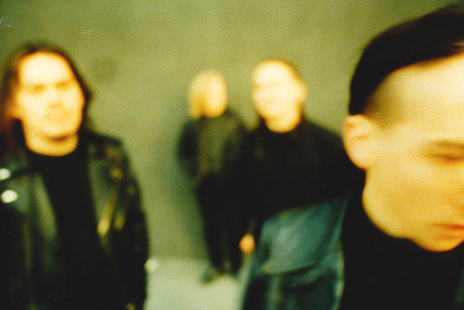
1993
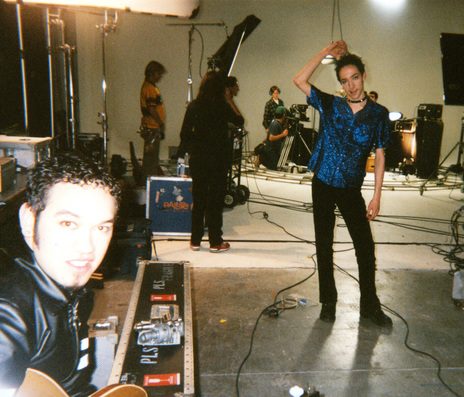
Shooting Interconnector video in Auckland 1998
Photo credit:
Photo by Murray Cammick
All The Young Fascists
Homegrown Profile: Shihad (2005)
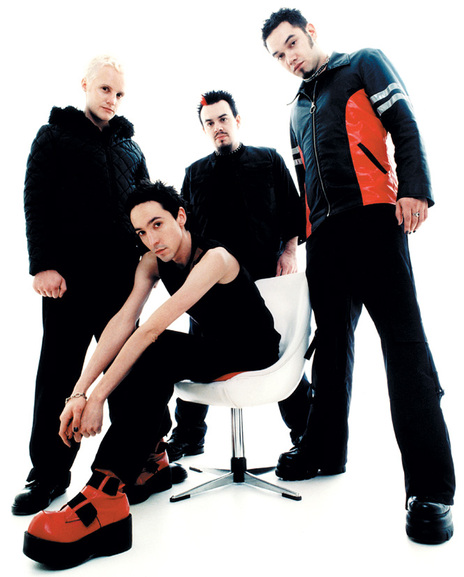
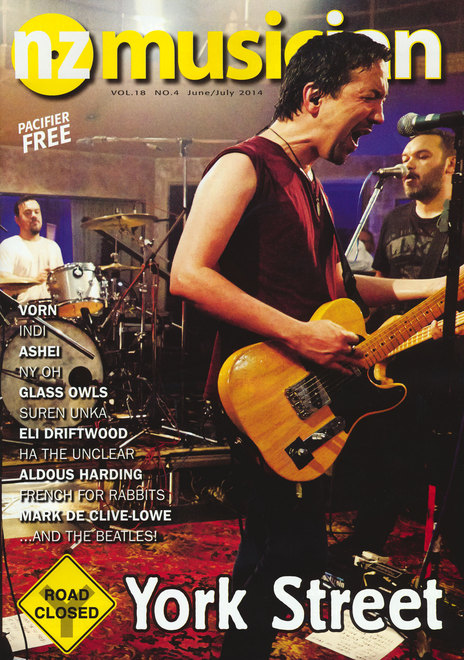
Shihad on the cover New Zealand Musician, June /July 2014
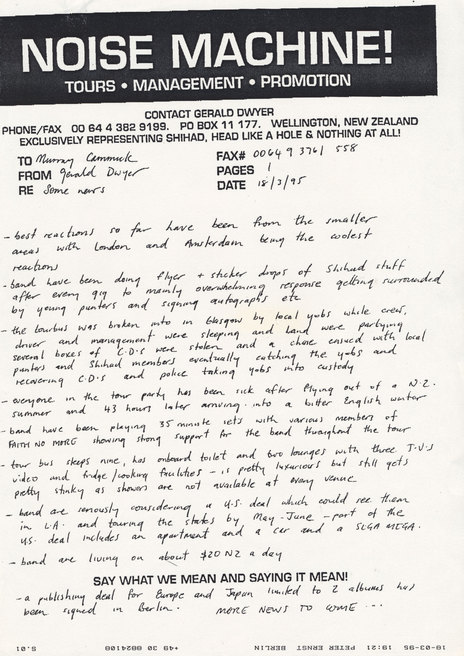
1995 fax from Shihad manager Gerald Dwyer in Berlin to Wildside Records boss Murray Cammick
Photo credit:
Murray Cammick Collection
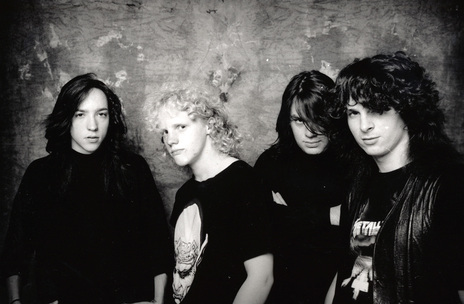
1990 - Jon Toogood, Phil Knight, Tom Larkin, Hamish Laing
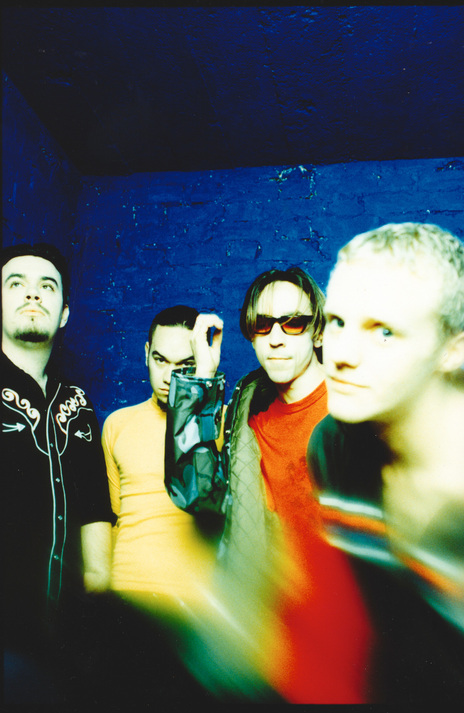
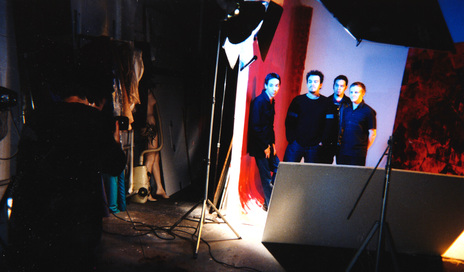
Becky Nunes shoots Shihad
Photo credit:
Photo by Murray Cammick
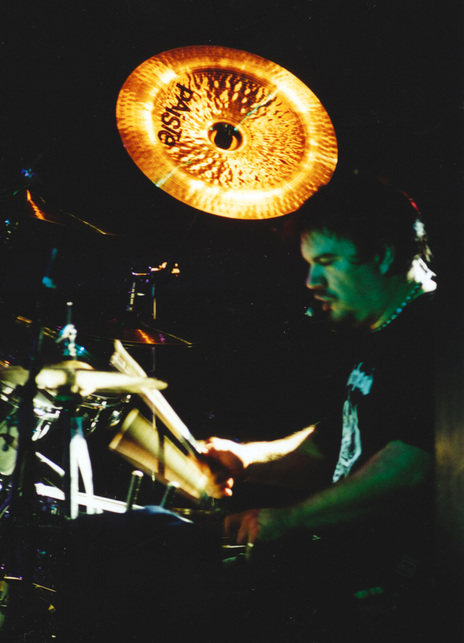
Tom Larkin
Photo credit:
Photo by Murray Cammick
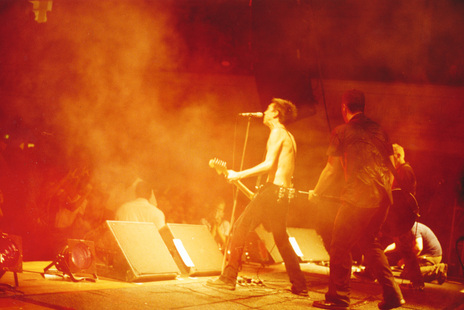
Wellington Town Hall, General Electric Tour 1999
Photo credit:
Photo by Murray Cammick
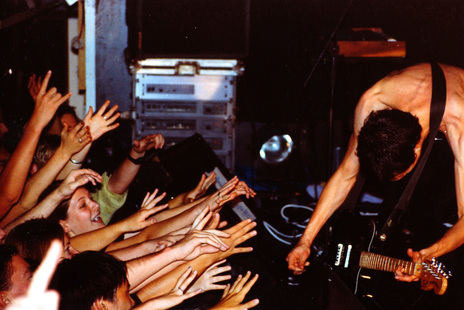
Gimme Gimme
Think You're So Free (2014)
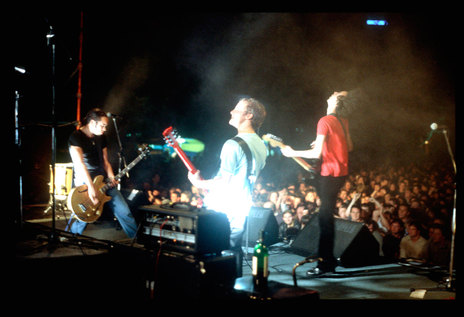
Shihad - 1996 New Year's Eve party, Dux de Lux, Christchurch Arts Centre
Photo credit:
Photo by Murray Cammick
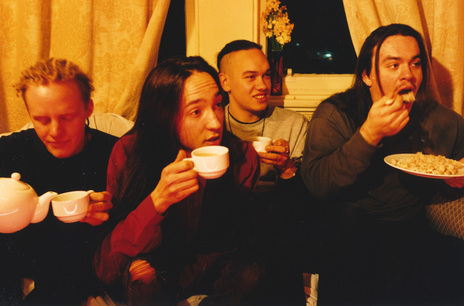
You Again
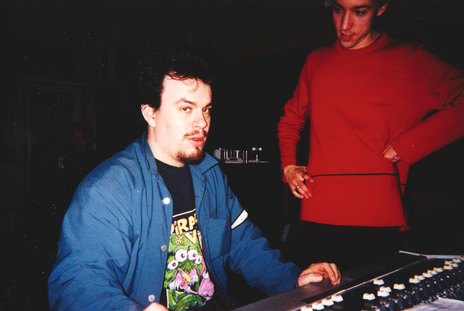
Tom Larkin and Jon Toogood - recording demos in Wellington
Photo credit:
Photo by Murray Cammick
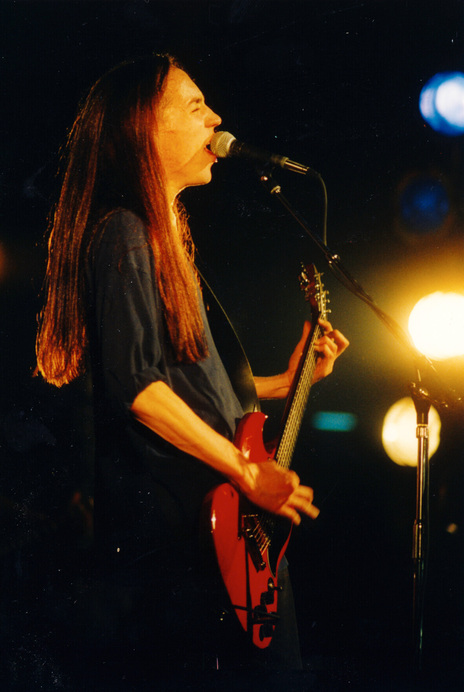
Jon Toogood
Photo credit:
Photo by Murray Cammick
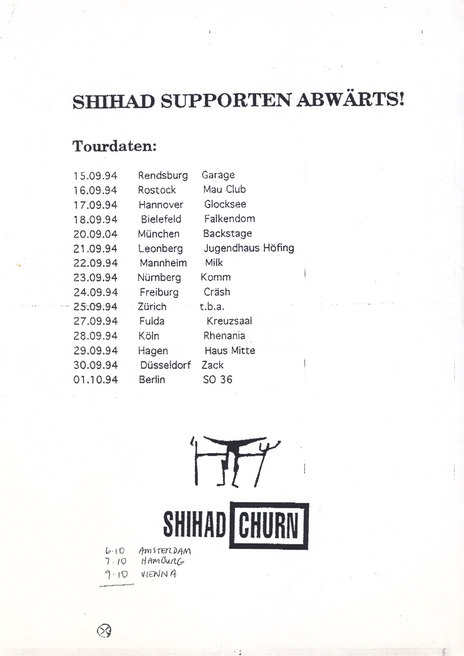
Germany, 1994
Photo credit:
Murray Cammick Collection
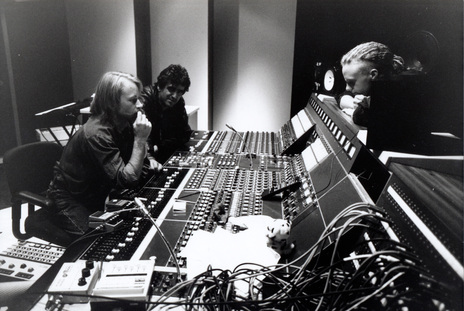
Malcolm Welsford, Jaz Coleman, Phil Knight - Churn sessions at York St studio
Photo credit:
Photo by Murray Cammick
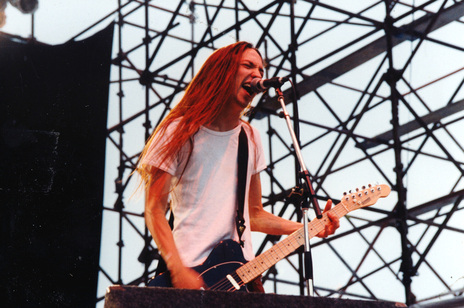
Big Day Out 1995
Photo credit:
Photo by Murray Cammick
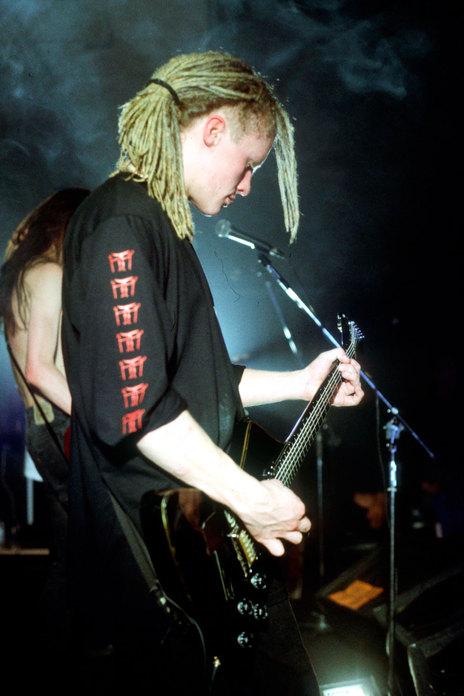
Phil Knight - Churn tour, Powerstation
Photo credit:
Photo by Murray Cammick
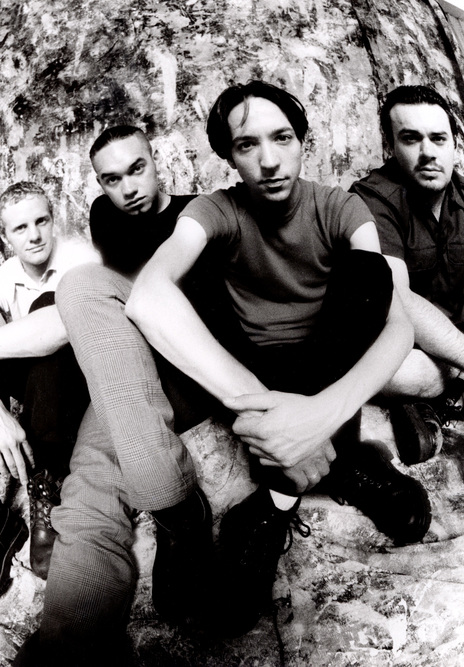
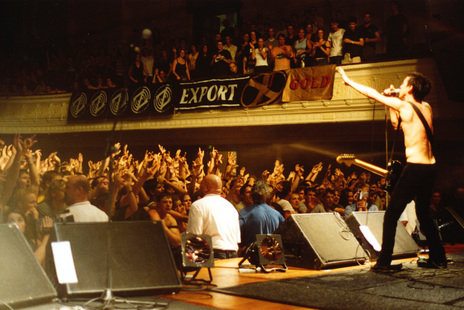
Wellington Town Hall, General Electric Tour 1999
Photo credit:
Photo by Murray Cammick
2010 interview with RipItUp
It and N.I.B/Born To Be Wild (live 1989)
Sleepeater
Interview with Jon Toogood, Tom Larkin and Karl Kippenberger from Shihad, 21 July 1994. Directed by Ross Cunningham, art by Johnnie Pain. Wildside.
Beautiful Machine documentary (trailer)
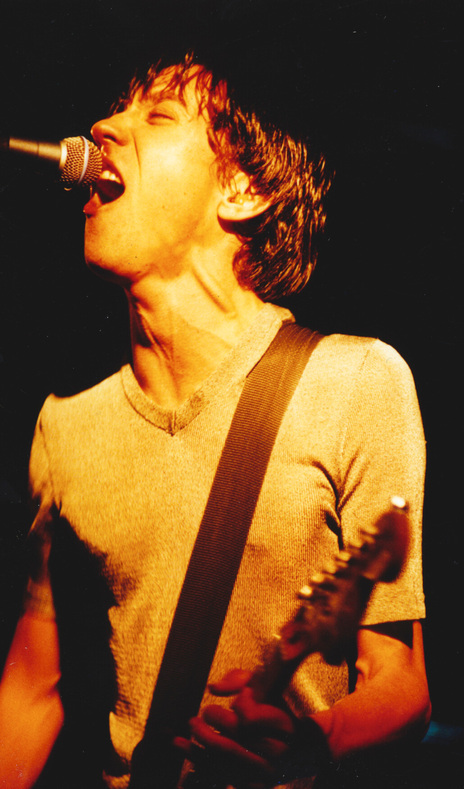
Jon Toogood, Cathedral Square Christchurch, World Aids Day Concert Nov 28 1997
Photo credit:
Photo by Murray Cammick
My Mind's Sedate (1999)
La La Land
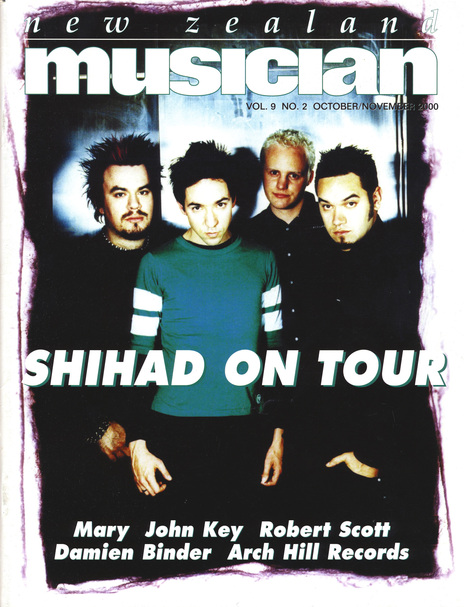
NZ Musician October/November 2000
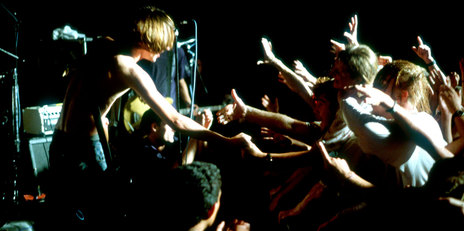
Beautiful Machine (Red Bull Studios 2008)
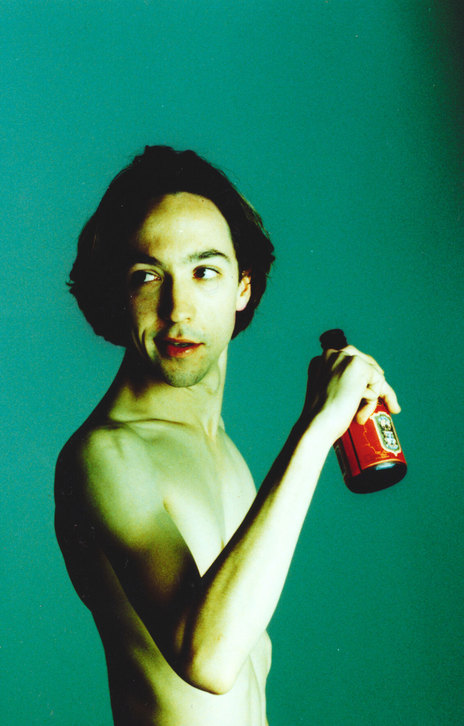
Deb's Night Out
Yr Head Is A Rock
Derail
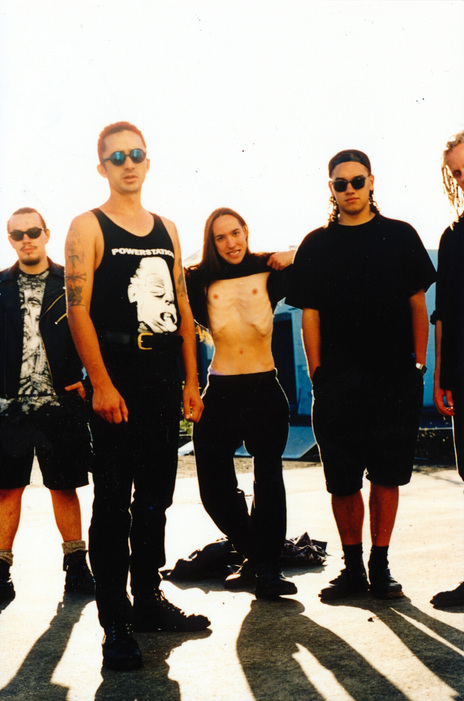
Shihad with Gerald Dwyer (in front)
Photo credit:
Photo by Murray Cammick
Beautiful Machine
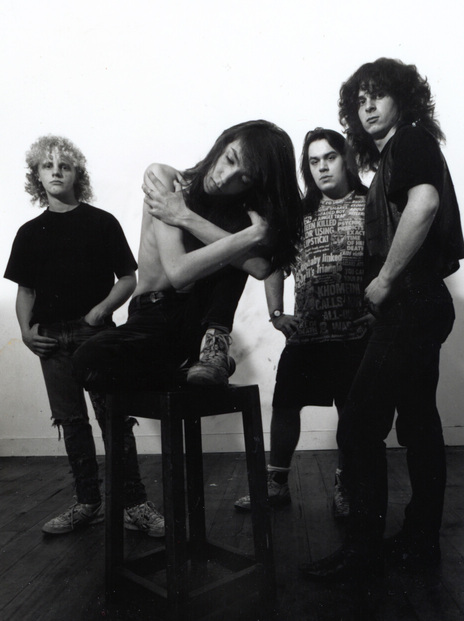
Very early Shihad
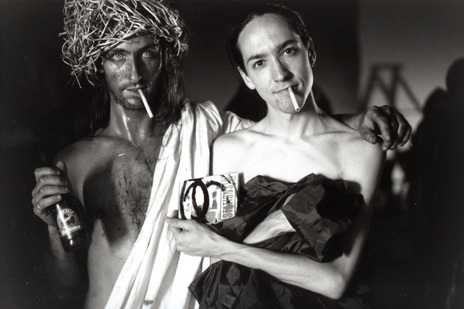
Bevan Sweeney and Jon Toogood - Stations video shoot 1994
Photo credit:
Photo by Murray Cammick
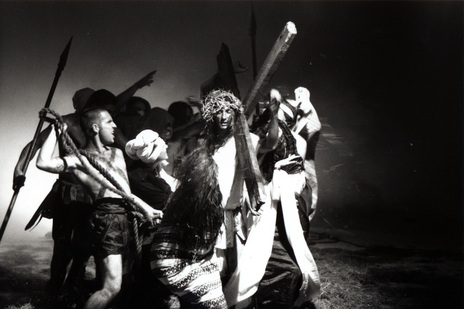
Otis Frizzell and Bevan Sweeney - Stations video shoot 1994
Photo credit:
Photo by Murray Cammick
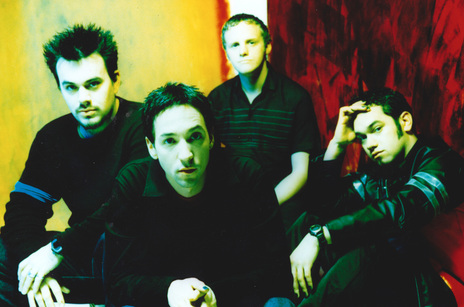
1999
Shihad interview, Give It a Whirl, 2003 (NZ On Screen, 2023)
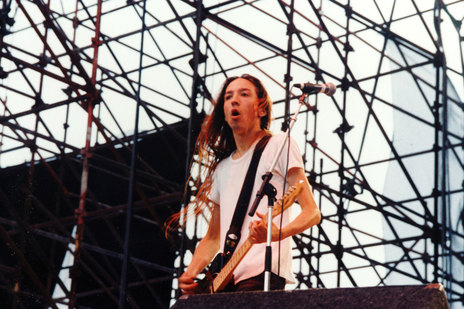
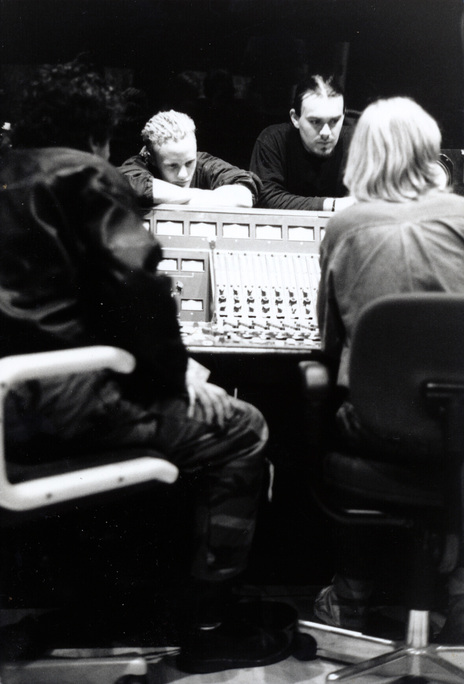
Jaz Coleman, Phil Knight, Tom Larkin, Malcolm Welsford - York St studio
Photo credit:
Photo by Murray Cammick
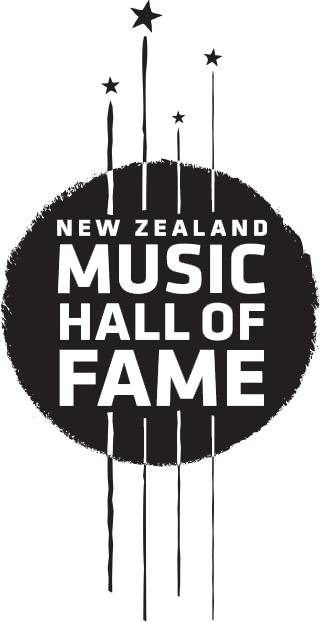
Shihad was inducted into the New Zealand Music Hall of Fame | Te Whare Taonga Puoro o Aotearoa in 2010. The Hall of Fame is an initiative of Recorded Music NZ and the Australasian Performing Right Association (APRA), whose support of AudioCulture enables the site to stream music content.
Members:
Jon Toogood - vocals
Tom Larkin - drums
Karl Kippenberger - bass
Phil Knight - guitar
Hamish Laing - bass

















